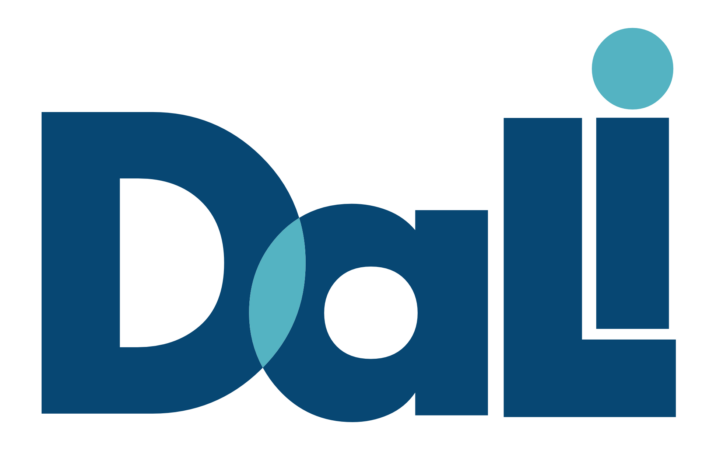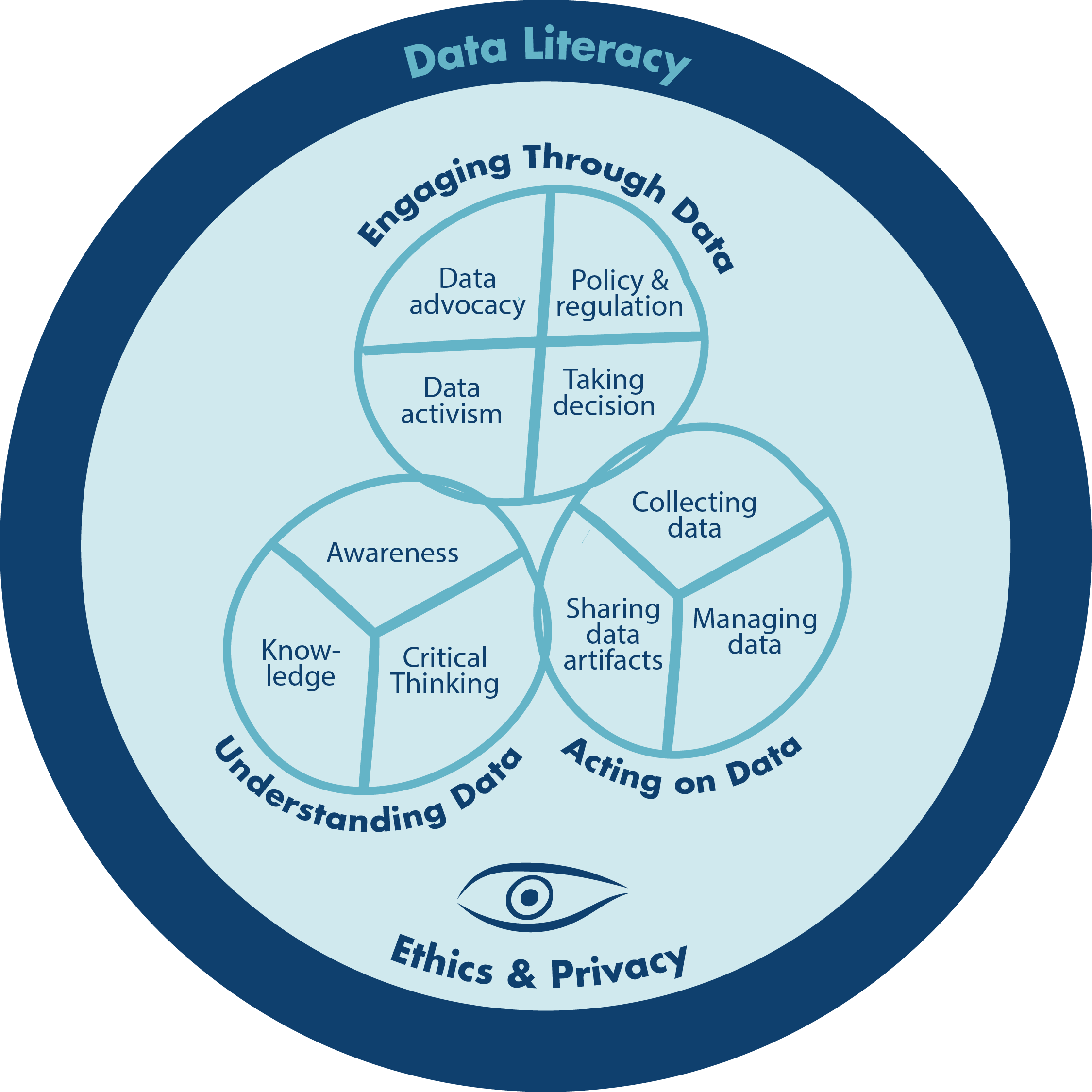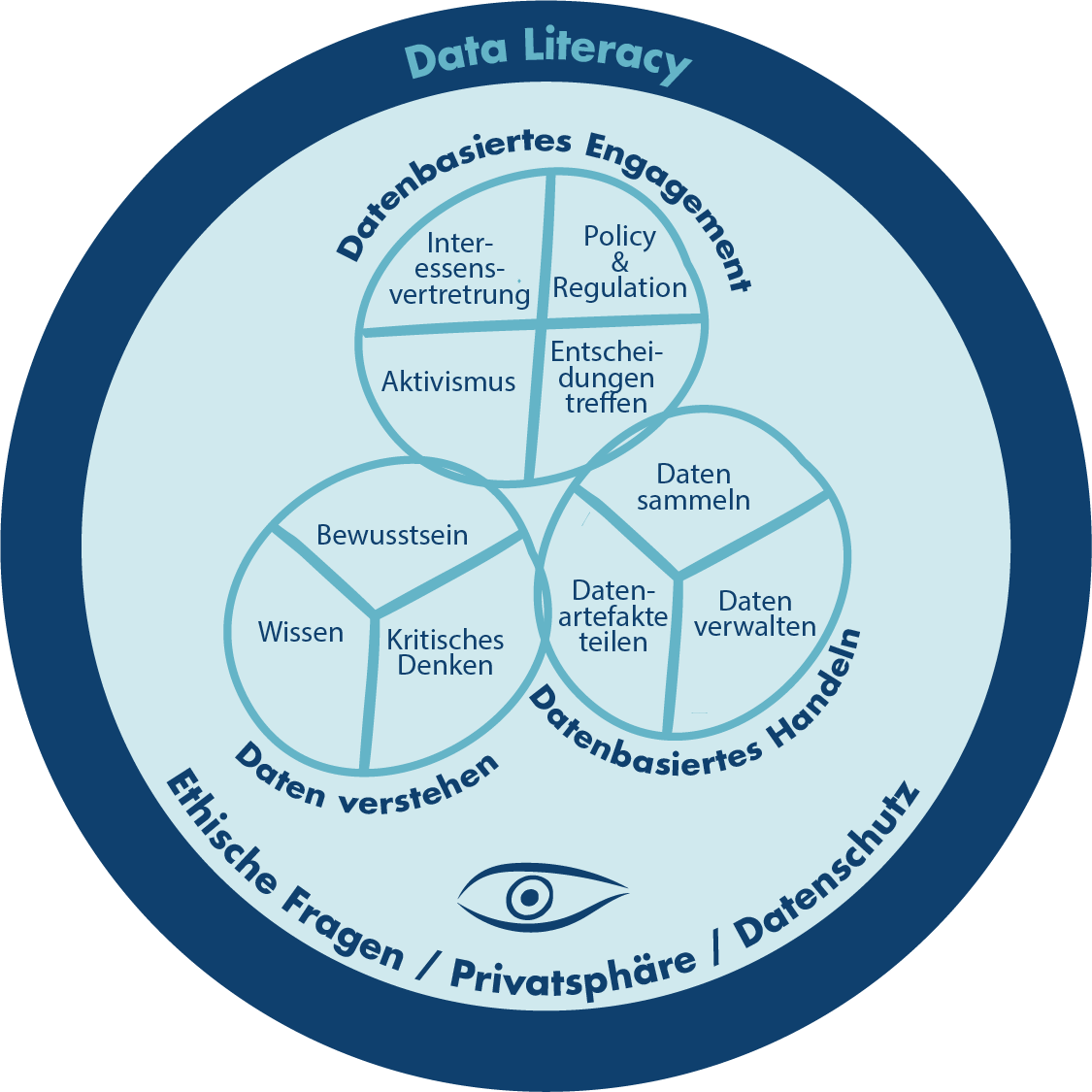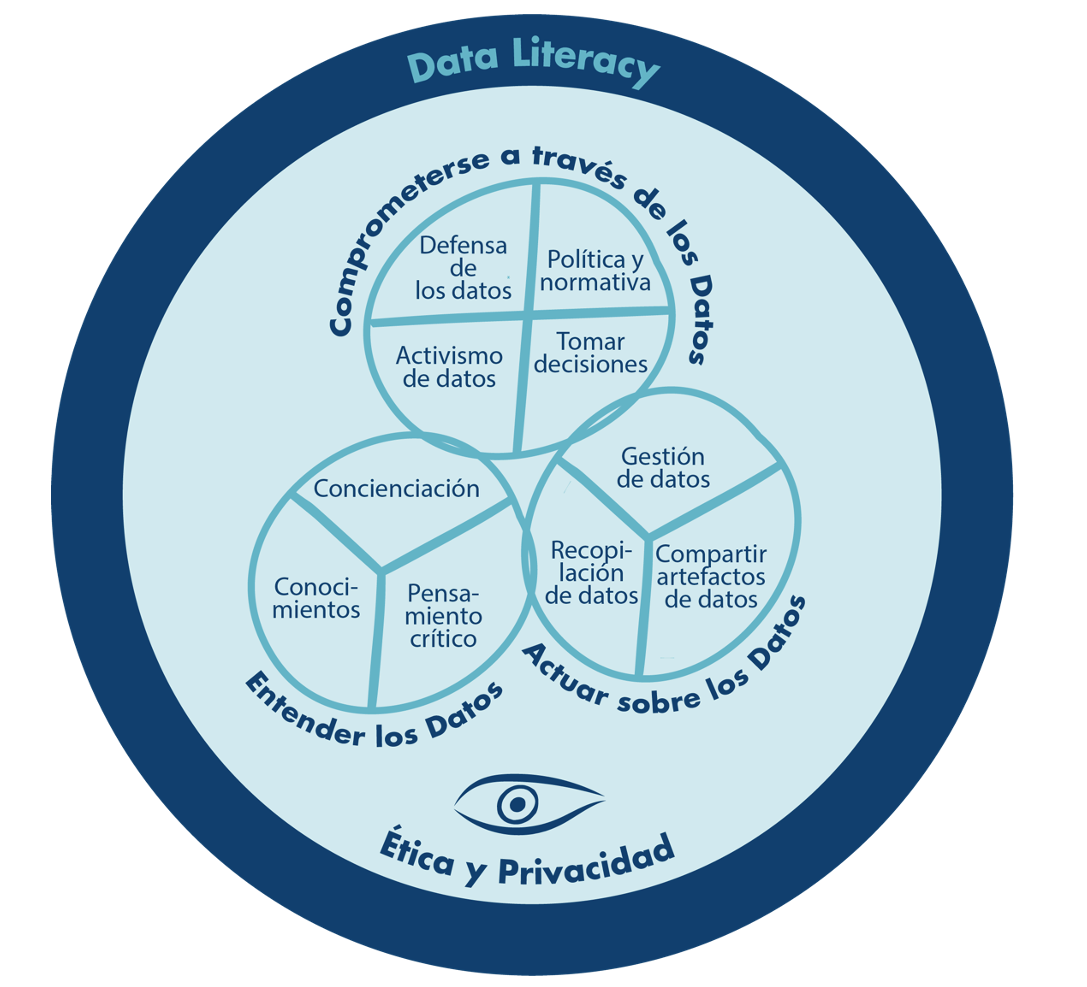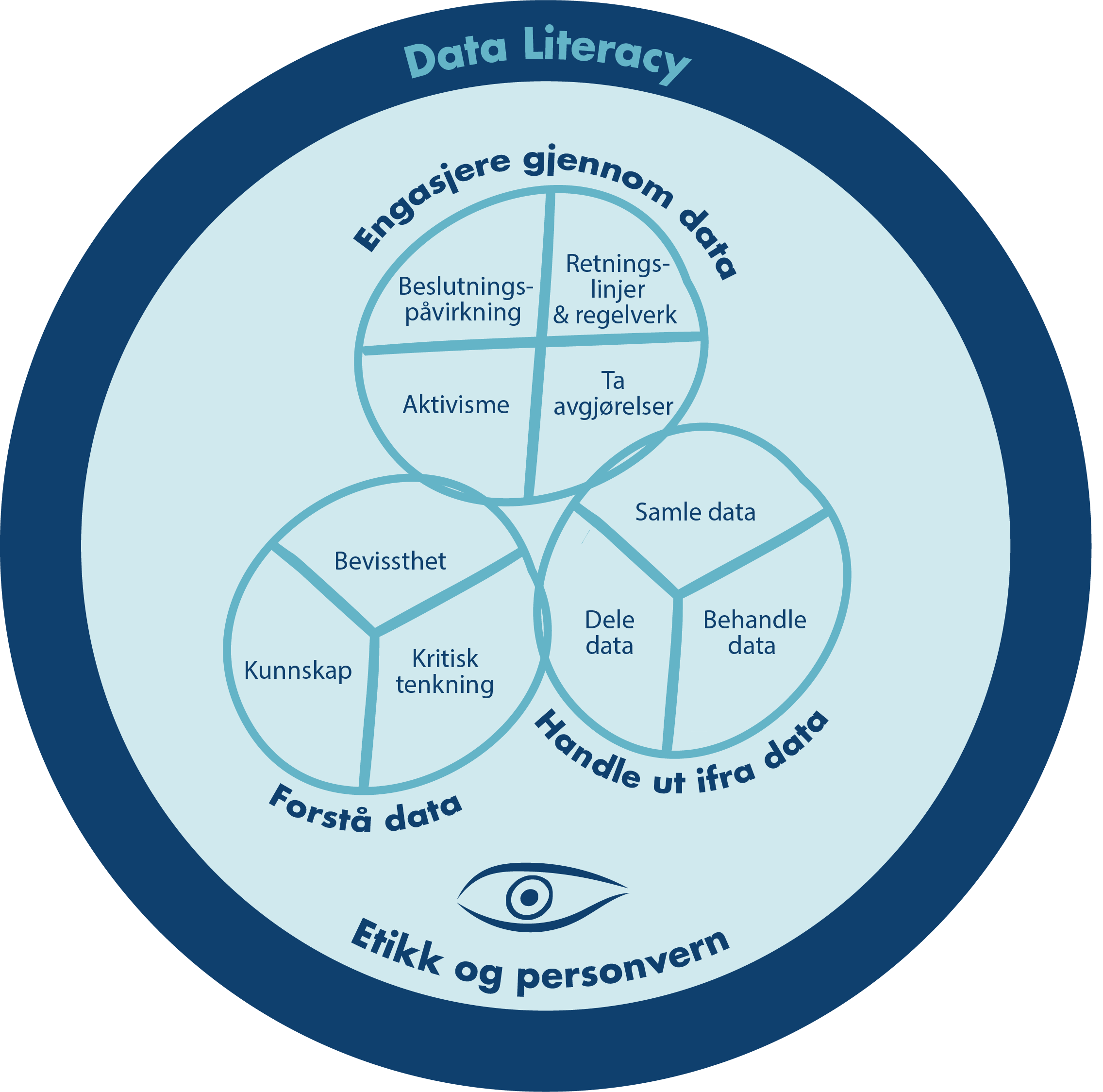Data literacy is about the competences people need to engage with and use the data encountered in everyday life. It implies finding ways to make data informed decisions both in everyday life and in various contexts, according to personal or collective goals.
Data literacy includes understanding what data is and having an awareness and attitude towards non-neutrality/biased data (collection, etc.). It implies having the skills to collect, select, store, preserve and manage data; analyse, evaluate, interpret, critique, apply, use, and work with data; and represent, visualise, and communicate stories from data. It also encompasses having the competence to ask and answer questions from data sets through an inquiry process.
Furthermore, Data literacy means having the knowledge to critically make judgements and interrogate the claims accompanying data, including ethical and legal aspects that affect ones and other people’s rights. It also includes the ability to use data as part of a design process, to solve problems, and to take decisions.
The DALI Data Literacy Framework comprises three main elements:
- Understanding Data
- Acting on Data
- Engaging Through Data.
A fourth transversal element (4) Ethics & Privacy can be found in each of the three main elements. An ethical perspective must underlie all the knowledge and skills and levels in the framework.
A data literate citizen is characterised by these competences related to data in everyday life. The DALI Data Literacy Framework was built based on a set of knowledge and skills that were identified during a Delphi study. The following lists can be drawn upon when developing courses, materials, or games in order to indicate which knowledge and skills citizens will develop through their use.
The full DALI framework also specifies the indicators of progressive levels of data literacy expertise (from basic to advanced) and is available in English, Spanish, German and Norwegian.

Understanding Data
The first element, Understanding Data, integrates three aspects: Knowledge, Awareness & Critical Thinking.
Citizens will know:
- what data is, what form it takes and how it can be used in society
- that data has different sources, types and formats
- how data can be collected from different environments
- there are technological pre-conditions for data creation and use
- that data is processed and manipulated by algorithms and apps
- that data is persistent and potentially stored
- the concepts of data security, data surveillance, big data and small data
- their data rights
Citizens will be aware that:
- they generate data using apps, websites, driving their car, etc.
- there exists data about them in profiles (My Data)
- data is a representation of reality; it is not reality itself
- data is complex, and that there are variations in complexity of data
- there are potential and drawbacks of big data in different realms of society such as health, education, economics, security, etc.
- data is monetised (e.g., “data as the new oil”)
- there are trade-offs when sharing your data
Citizens will be able to think critically about:
- the relationship between humans and data: the use automated processes vs human actions
- who is making the decision (the human or the algorithm)
- how data tools work
- data being used for targeted advertisements
- the misrepresentation of data
- how data is monetised, for which purposes it is being collected
Acting on Data
The second element, Acting on Data, refers to the skills needed to take action on data. It has three sub-elements:
Citizens will have the skills to:
- configure privacy settings, revoke access, request to have your data erased
- use collected data to change your own behaviour (e.g., from a health app)
- make informed decisions when interacting with data-collecting actors (e.g. mobile apps, internet portals and employers)
Citizens will have the skills to:
- organise data
- process, protect and store their own data
- move data from one application to another
- manipulate data
- evaluate the quality of data
- identify misrepresentation of data
Citizens will have the skills to:
- synthesise, visualise and represent data in different formats
- translate data into everyday language (e.g., tell a story about data)
- share their data through an open repository


Engaging through Data
In this third element, the ambition goes further; to take actions that affect individuals and the world (the collective). Engaging Through Data has four sub-elements:
Citizens will have the knowledge and skills to:
- participate in data-based policy-making processes
- interact with key stakeholders (e.g., data protection agencies) as needed for the resolution of issues related to data use (their own or other’s data)
Citizens will have the knowledge and skills to:
- make their own decisions based on critical consideration of data
- understand the balance between individual and social benefits and the risks related to data use
- be aware of their own role in acting on data from their different roles (professional, parent, citizen, etc.)
Citizens will have the knowledge and skills to:
- use data as a basis or activism for data engagement
- put their data rights into practice
- self-regulate their own data footprint
Citizens will have the knowledge and skills to:
- communicate data meaning to stakeholders or to other peers
- raise collective data awareness about the possibilities and challenges in data use
